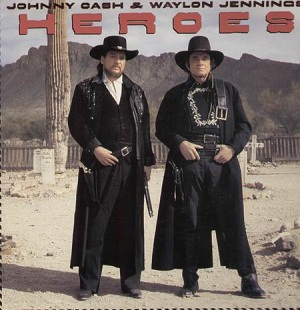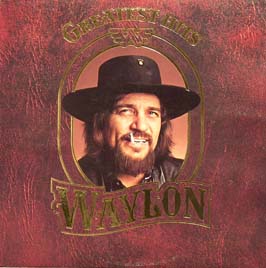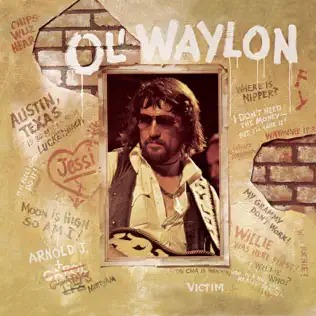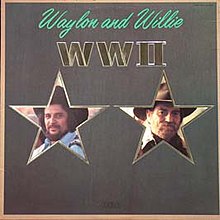Lincoln Wayne "Chips" Moman was an American record producer, guitarist, and songwriter. He is known for working in R&B, pop music and country music, operating American Sound Studios and producing hit albums like Elvis Presley's 1969 From Elvis in Memphis and the 1985 debut album for The Highwaymen. Moman won a Grammy Award for co-writing "(Hey Won't You Play) Another Somebody Done Somebody Wrong Song", a 1975 hit for B.J. Thomas.

Highwayman is the first studio album released by country supergroup The Highwaymen, comprising Kris Kristofferson, Johnny Cash, Waylon Jennings and Willie Nelson. Highwayman, released through Columbia Records in 1985, was the group's first and most successful album.

Highwayman 2 is the second studio album released by American country supergroup The Highwaymen. This album was released in 1990 on the Columbia Records label. Johnny Cash had left Columbia several years earlier, making this a "homecoming", and ultimately his final work for Columbia as the next Highwaymen album would be issued on another label.

Rainbow is the 70th album by American country singer Johnny Cash, his last for Columbia Records, released in 1985. "I'm Leaving Now", which was re-recorded 15 years later for Cash's American III: Solitary Man, was released as a single rather unsuccessfully, but the album's signature song is a cover of Kris Kristofferson's "Here Comes That Rainbow Again", which also appeared on Cash's 1995 collaboration with Kristofferson, Willie Nelson and Waylon Jennings - known as The Highwaymen - entitled The Road Goes on Forever, though it was sung solo by Kristofferson on the latter. Also included is a cover of Creedence Clearwater Revival's "Have You Ever Seen the Rain?," from Pendulum. The album also includes the song "Love Me Like You Used To," which was later recorded by fellow country singer Tanya Tucker, and became a country hit for her. Following the release of this album and a duet album with Jennings in 1986, Cash moved to Mercury Records as a result of Columbia's fading interest in his music, though he later returned to Columbia for the second Highwaymen album.

Heroes is a duet studio by American country music singers Johnny Cash and Waylon Jennings, released on Columbia Records in 1986.

Repossessed is an album by Kris Kristofferson, released on Mercury Records in 1986. It was Kristofferson's first full-length solo album since 1981's To the Bone, although the singer did collaborate with other artists in the meantime, most notably on Highwayman with Johnny Cash, Waylon Jennings and Willie Nelson.

Waylon is a studio album by American country music artist Waylon Jennings, released in 1970 on RCA Victor.

Wanted! The Outlaws is a compilation album by Waylon Jennings, Willie Nelson, Jessi Colter, and Tompall Glaser, released by RCA Records in 1976. The album consists of previously released material with four new songs. Released to capitalize on the new outlaw country movement, Wanted! The Outlaws earned its place in music history by becoming the first country album to be platinum-certified, reaching sales of one million.

Waylon & Willie is a duet studio album by American singers Waylon Jennings and Willie Nelson, released by RCA Records in 1978. In the US, it stayed at #1 album on the country album charts for ten weeks and would spend a total of 126 weeks on the country charts.

Greatest Hits is a compilation album by American country music artist Waylon Jennings, released in 1979 by RCA Records.

Take It to the Limit is an album by Willie Nelson with Waylon Jennings, released in 1983 on Columbia Records.

Ol' Waylon is a studio album by American country music artist Waylon Jennings. It was released on RCA Victor in 1977. It eventually became one of Jennings' highest-selling albums, due in no small part to the phenomenal success of the chart-topping "Luckenbach, Texas ." It was also the singer's fourth solo album in a row to reach the top of the country charts, remaining there for thirteen weeks and becoming country music's first platinum album by any single solo artist.

Black on Black is a studio album by American country music artist Waylon Jennings, released on RCA Victor in 1982.

It's Only Rock & Roll is an album by Waylon Jennings, released on RCA Victor in 1983.

Clean Shirt is a duet album by Waylon Jennings and Willie Nelson, released on Epic Records in 1991.

Nashville Rebel is a box set by Waylon Jennings, released on RCA Nashville through Legacy Recordings in 2006. According to AllMusic's Stephen Thomas Erlewine, it is "the first comprehensive, multi-label Waylon Jennings retrospective ever assembled," comprising ninety-two songs recorded between [1958 and 1994, with selections from the majority of the singer's recording career. The first track of the box set is the Buddy Holly-produced "Jole Blon," released in 1958, while the last is "I Do Believe," a song produced by Don Was that was included on The Highwaymen's 1995 release, The Road Goes On Forever. The other material on the box set covers Jennings' career chronologically, with songs ranging from his years on RCA's roster to later compositions from his short-lived stay at Epic Records; it ignores, however, the tracks from Jennings albums released on independent labels. The majority of the singer's charting singles are included in the package, as are collaborations such as "Mamas Don't Let Your Babies Grow Up to Be Cowboys" with Willie Nelson and "Highwayman" with The Highwaymen. A notable addition is the previously unreleased "The Greatest Cowboy of Them All," a 1978 duet with Johnny Cash which was later recorded by Cash alone for A Believer Sings the Truth (1979) and The Mystery of Life (1991); two others, "It's Sure Been Fun" and "People in Dallas Got Hair," had never been released in the United States. Nashville Rebel was released on four CDs, with a 140-page booklet and liner notes by Rich Kienzle and Lenny Kaye.

"Luckenbach, Texas " is a song recorded by American country music artist Waylon Jennings. It was released in April 1977 as the first single from the album Ol' Waylon. It was written by Chips Moman and Bobby Emmons.

Always on My Mind is the 27th studio album by country singer Willie Nelson. It was the Billboard number one country album of the year for 1982, and stayed 253 weeks on the Billboard Top Country Albums charts, peaking at number one for a total of 22 weeks, as well as spending 99 weeks on the all-genre Billboard 200, peaking at number two for 3 weeks.

What a Wonderful World is the 36th studio album by country singer Willie Nelson released in March 1988.
"The Wurlitzer Prize (I Don't Want to Get Over You)" is a song written by Chips Moman and Bobby Emmons, and recorded by American country music artist Waylon Jennings. It was released in September 1977 as the first single from the album Waylon & Willie. The song was Jennings' sixth number one on the country charts. The single spent two weeks at the top and a total of eleven weeks on the chart. It was later covered by Kacey Musgraves for a tribute show to Jennings, the live album of which was released in 2017.


















